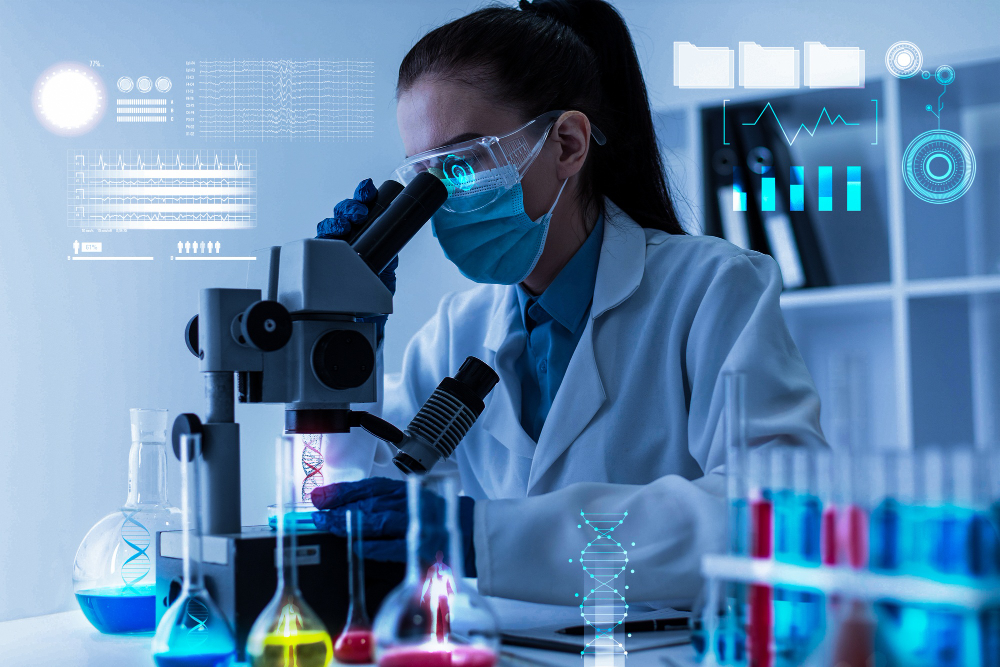Advanced Laboratory

A laboratory diagnostic service is a vital component of the healthcare system, specializing in the analysis of biological specimens to aid in the diagnosis, treatment, and management of medical conditions. These facilities are equipped with state-of-the-art instrumentation and staffed by skilled professionals trained in various disciplines of laboratory science. Their primary objective is to provide accurate and timely test results to healthcare providers, assisting them in making informed decisions about patient care.
These services offer a diverse menu of tests and assays covering areas such as clinical chemistry, hematology, microbiology, immunology, and molecular diagnostics. Clinical chemistry involves analyzing blood and bodily fluids to assess organ function, metabolic status, and electrolyte balance. Hematology focuses on the examination of blood components to diagnose blood disorders and monitor treatment responses.
Microbiology identifies pathogens responsible for infectious diseases, while immunology detects immune markers associated with autoimmune disorders, allergies, and infections. Molecular diagnostics analyze DNA, RNA, and genetic markers to diagnose genetic disorders, infectious diseases, and certain types of cancer.
Advanced technologies and instrumentation play a crucial role in laboratory diagnostic services, enabling rapid and accurate testing. Automated analyzers streamline sample processing and analysis, while mass spectrometry provides high-resolution analysis of molecules in complex samples. Polymerase chain reaction (PCR) amplifies and detects DNA or RNA sequences, widely used in infectious disease testing and genetic analysis.
Quality assurance and accreditation are essential aspects of laboratory diagnostic services to ensure the reliability and validity of test results. These facilities implement internal quality control measures, participate in external proficiency testing programs, and adhere to accreditation standards such as ISO 15189.
Reporting and interpretation are integral components of laboratory diagnostic services, with comprehensive test reports provided to healthcare providers. These reports often include interpretive comments or clinical correlations to aid in result interpretation and facilitate clinical decision-making.
